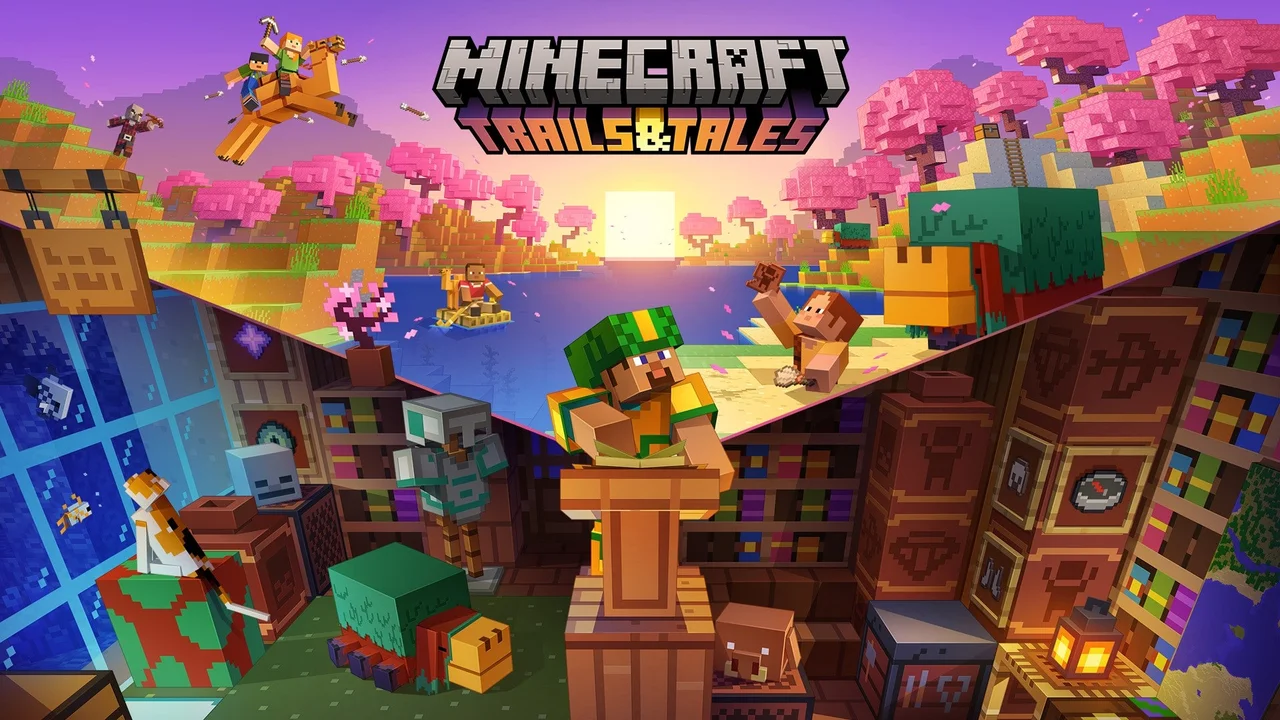Introduction
The gaming industry has witnessed a remarkable transformation with the integration of Artificial Intelligence (AI) technology. AI has revolutionized the way games are developed, played, and experienced. From enhancing gameplay to influencing game design and storytelling, AI has become an integral part of the gaming ecosystem. Let’s explore the impact of AI on video games and delve into the various aspects of AI’s role in transforming the gaming industry.

I do think that generative AI is going to change the nature of what we do, and I think it’ll change the nature of many of our games in the future.
Strauss Zelnick, CEO of Take-Two Interactive
Table of contents
Understanding AI in Games
AI in games refers to the implementation of intelligent algorithms and systems that enable computer-controlled entities to exhibit human-like behavior and decision-making capabilities. These entities, known as Non-Player Characters (NPCs), interact with players, adapt to their actions, and contribute to the overall gaming experience. AI technology enables NPCs to learn, reason, and make decisions based on the game’s environment and objectives.
The Impact of AI on Video Games
The integration of AI in video games has had a profound impact on the gaming industry. It has opened up new possibilities for game developers, allowing them to create more immersive and engaging experiences for players. AI-powered NPCs, adaptive difficulty levels, and realistic environments are just a few examples of how AI has transformed the gaming landscape.
Generative AI: Changing the Way Games are Developed
Generative AI, a subset of AI, has emerged as a game-changer in the field of game development. It involves using AI algorithms to generate content, such as characters, levels, and even entire game worlds. This approach has significantly reduced the time and effort required to create games, enabling developers to focus more on the creative aspects of game design.
Exploring Generative AI in Gaming
Generative AI algorithms analyze existing game assets and generate new content based on patterns and rules learned from the data. For example, a generative AI algorithm can create unique levels in a platformer game by analyzing the design patterns of existing levels and generating new ones that adhere to similar principles. This approach allows for endless possibilities and keeps the gameplay fresh and exciting.
Advantages of Using Generative AI in Game Development
The use of generative AI in game development offers several advantages. Firstly, it allows for the creation of vast and diverse game worlds that are procedurally generated, ensuring that no two playthroughs are the same. Secondly, it reduces the development time and costs associated with manually designing every aspect of the game. Lastly, generative AI enables developers to experiment with new ideas and concepts, fostering innovation in the gaming industry.
Examples of Games Utilizing Generative AI

Several games have successfully implemented generative AI to enhance the gaming experience. No Man’s Sky, a popular space exploration game, utilizes generative AI algorithms to create an entire universe with billions of procedurally generated planets, each with its own unique features and ecosystems. Minecraft, a sandbox game, uses generative AI to generate infinite worlds with diverse landscapes, structures, and biomes.
AI’s Role in Enhancing Gameplay
AI technology plays a crucial role in enhancing gameplay by creating intelligent and dynamic game environments. Let’s explore some of the key areas where AI has made a significant impact.
AI-powered NPCs and Non-Player Characters

AI-powered NPCs add depth and realism to games by simulating human-like behavior. These characters can interact with players, respond to their actions, and adapt their strategies accordingly. For example, in a first-person shooter game, AI-controlled enemies can analyze the player’s behavior and adjust their tactics to provide a challenging and engaging experience.
Adaptive Difficulty and Intelligent Game Design
AI algorithms can dynamically adjust the difficulty level of a game based on the player’s skill and performance. This ensures that players are constantly challenged without feeling overwhelmed or bored. Additionally, AI can analyze player behavior and preferences to provide personalized game experiences, tailoring the gameplay to suit individual players.
Realistic and Immersive Environments
AI technology enables the creation of realistic and immersive game environments. Advanced physics simulations, dynamic weather systems, and realistic character animations are all made possible through AI algorithms. These elements contribute to a more immersive gaming experience, making players feel like they are part of the game world.
AI’s Influence on Game Design and Storytelling
AI has had a profound influence on game design and storytelling, allowing for more dynamic and personalized experiences for players.

Procedural Generation and Dynamic Storylines
Procedural generation, powered by AI, allows for the creation of dynamic and ever-changing storylines. Games like “The Elder Scrolls V: Skyrim” use AI algorithms to generate quests, dialogues, and events based on the player’s actions and choices. This creates a unique narrative experience for each player, enhancing replayability and immersion.
Personalized Player Experiences
AI algorithms can analyze player data, such as gameplay patterns and preferences, to personalize the gaming experience. For example, a game can dynamically adjust the narrative, difficulty, and gameplay mechanics based on the player’s skill level and playstyle. This level of personalization enhances player engagement and satisfaction.
AI-generated Dialogues and Narratives
AI-powered natural language processing algorithms can generate realistic dialogues and narratives for games. This allows for more interactive and immersive storytelling, where players can engage in meaningful conversations with AI-controlled characters. Games like “Detroit: Become Human” utilize AI-generated dialogues to create compelling and emotionally engaging narratives.
AI’s Impact on Game Graphics and Visuals
AI technology has also made significant advancements in improving game graphics and visuals, creating more realistic and visually stunning gaming experiences.
Real-time Rendering and Graphics Optimization
AI algorithms have revolutionized real-time rendering techniques, allowing for more efficient and optimized graphics processing. This enables games to achieve higher frame rates, better visual quality, and more realistic lighting and shadows. AI-powered graphics optimization techniques also help in reducing the hardware requirements for running graphically intensive games.
Textures and Visual Effects
AI algorithms can generate high-quality textures and visual effects, enhancing the overall visual fidelity of games. For example, NVIDIA’s DLSS (Deep Learning Super Sampling) technology uses AI to upscale lower-resolution images in real-time, resulting in sharper and more detailed visuals. AI-powered visual effects, such as realistic water simulations and dynamic particle systems, add a new level of immersion to games.
Virtual Reality and Augmented Reality in Gaming
AI technology has played a crucial role in the development of Virtual Reality (VR) and Augmented Reality (AR) games. AI algorithms enable realistic object tracking, gesture recognition, and spatial mapping, creating immersive and interactive experiences for players. Games like “Beat Saber” and “Pokémon GO” utilize AI-powered AR technology to blend virtual and real-world elements seamlessly.
Also Read: Role of AI in Augmented Reality
The Future of AI in Gaming
The future of AI in gaming holds immense potential for further innovation and advancement. Let’s explore some of the exciting possibilities that lie ahead.
AI-powered Virtual Worlds and Open-Ended Gameplay
AI algorithms can create dynamic and evolving virtual worlds, where the game environment and characters adapt and respond to player actions in real-time. This opens up new possibilities for open-ended gameplay, where players can shape the game world and influence its outcomes. Games like “Cyberpunk 2077” and “Red Dead Redemption 2” provide glimpses of this future, with their immersive and reactive game worlds.
Ethical Considerations and AI Fairness in Gaming
As AI becomes more prevalent in gaming, ethical considerations become crucial. Developers need to ensure that AI algorithms are fair, unbiased, and do not perpetuate harmful stereotypes or discriminatory behavior. Striking a balance between AI-driven gameplay and ethical considerations will be a key challenge for the gaming industry.
AI-assisted Game Testing and Quality Assurance
AI algorithms can assist in game testing and quality assurance processes, automating repetitive tasks and identifying potential bugs and issues. This allows developers to focus more on creative aspects of game development, ensuring a smoother and more polished gaming experience for players.
Conclusion
Several games have successfully implemented AI technology, transforming the gaming experience for players.
Games like “The Last of Us Part II” and “Horizon Zero Dawn” have received critical acclaim for their AI-powered NPCs, realistic environments, and immersive storytelling. These games showcase the potential of AI in creating compelling and memorable gaming experiences.

AI has revolutionized the gaming industry, transforming the way games are developed, played, and experienced. From generative AI in game development to AI-powered NPCs and adaptive difficulty levels, AI has enhanced gameplay and created more immersive and personalized experiences for players. AI’s influence extends to game design, storytelling, graphics, and the future of gaming. As AI continues to evolve, the gaming industry will witness further innovation and advancements, shaping the future of entertainment.
Want to master Generative AI concepts? Enroll in our GenAI Pinnacle Program today!
Frequently Asked Questions
A. AI in gaming serves to create responsive and adaptive experiences, primarily through non-player characters (NPCs), mimicking human-like intelligence. It plays a crucial role in determining NPC behavior within the game world.
A. AI is utilized in video games to generate responsive, adaptive, and intelligent behaviors, especially in non-playable characters (NPCs). This application simulates human-like intelligence, enhancing the overall gaming experience.
A. Various AI tools such as generative AI, conversational AI, and machine learning algorithms collaborate in gaming to simulate responsive environments and craft innovative game worlds, contributing to enriched gaming experiences.
A. Examples of AI in gaming include non-player characters capable of responding to player actions, pathfinding algorithms enabling navigation in complex environments, and adaptive game AI adjusting to diverse player strategies. These examples highlight the versatility and impact of AI in the gaming landscape.
Related
- SEO Powered Content & PR Distribution. Get Amplified Today.
- PlatoData.Network Vertical Generative Ai. Empower Yourself. Access Here.
- PlatoAiStream. Web3 Intelligence. Knowledge Amplified. Access Here.
- PlatoESG. Carbon, CleanTech, Energy, Environment, Solar, Waste Management. Access Here.
- PlatoHealth. Biotech and Clinical Trials Intelligence. Access Here.
- Source: https://www.analyticsvidhya.com/blog/2023/12/ai-in-gaming-industry/



